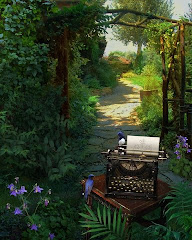Tasmanian Devils have an undeserved reputation as being
nasty, ferocious little varmints you'd be wise to avoid. As a threatened species, considered to be on
the road to extinction like their distant cousins the Tasmanian Tigers, they've
attracted a lot of media attention in recent times.
Life is precarious for these creatures for a number of
reasons. For the last ten years or so their
numbers have been decimated by a rare infectious and deadly facial cancer. As well, they too often end up as road kill, predisposed
as they are to scavenge for the carcasses of other animals on Tasmania's
heavily tourist populated roads. This has
always been the case, but in combination with the inroads of the cancer, it's a
far more serious threat than previously.
For an as yet unknown reason, those animals that inhabit the
north-west of Tasmania have proved more resistant to the disease than their counterparts
in other regions. Now however these
apparently hardier little critters are likely to be impacted by the newly
approved mine proposed for the Tarkine region in the north west. With this combination of adversities, the
odds are really stacked against them.
This is unlikely to be a populist cause, and unless you're a nature conservationist or environmentalist, it may seem just one more of the endless problems we're asked to get concerned about. The devils have gotten rather a bad rap, not being the most appealing of animals when pictured with their jaws gaping, and the graphic documentaries showing the cancer sufferers'eaten away faces have probably done little to endear them to lovers of the cute and cuddly.
Other than seeing them dead by the side of the road and the
stuffed version in souvenir shops across the island, we didn't encounter them on
our recent trip until the day we left Cradle Mountain and visited
Devils@Cradle.
As the only visitors, when we arrived we were lucky enough
to get a personalised tour of the facility which housed a number of devils of
all ages including babies. These animals
are part of what's called the Captive Breeding Program administered in
conjunction with the Tasmanian Government's "Save the Tasmanian Devil
Program", an initiative to help sustain genetic diversity in Australia's
native animal populations.
The program also conducts orphan rehabilitation through
taking in abandoned babies and hand rearing them to maturity, either to stay in
the sanctuary or be released back into the wild. The wildlife carers are exactly that, caring
and expert in their knowledge of and skills with these unique creatures.
While there, we were amazed to see the level of rapport
between our tour guide and the animals, which allowed her to pick them up and
cradle them like kittens. Far from being
the ferocious miniature man-eaters they can appear to be, we learned they only seem
that way because of their huge jaws, fearsome looking teeth and the spine
chilling cry they emit when afraid or threatened. In this case their bark is a good deal worse
than their admittedly not inconsiderable bite!
It would be a tragedy to see the devils go the way of the
tigers, which are now only a distant and mythologised remnant of our history. Apart from the fact that these animals seem
to have gotten an especially raw deal over recent years, as a part of
Australia's world renowned and unique native fauna, what's left of them must be
preserved. Let's not allow them to be crushed
for ever under the advancing tread of so-called progress.
If, like me, you want to be a devil's
advocate, check out "Save the Tasmanian Devil" for ways of supporting
them.









